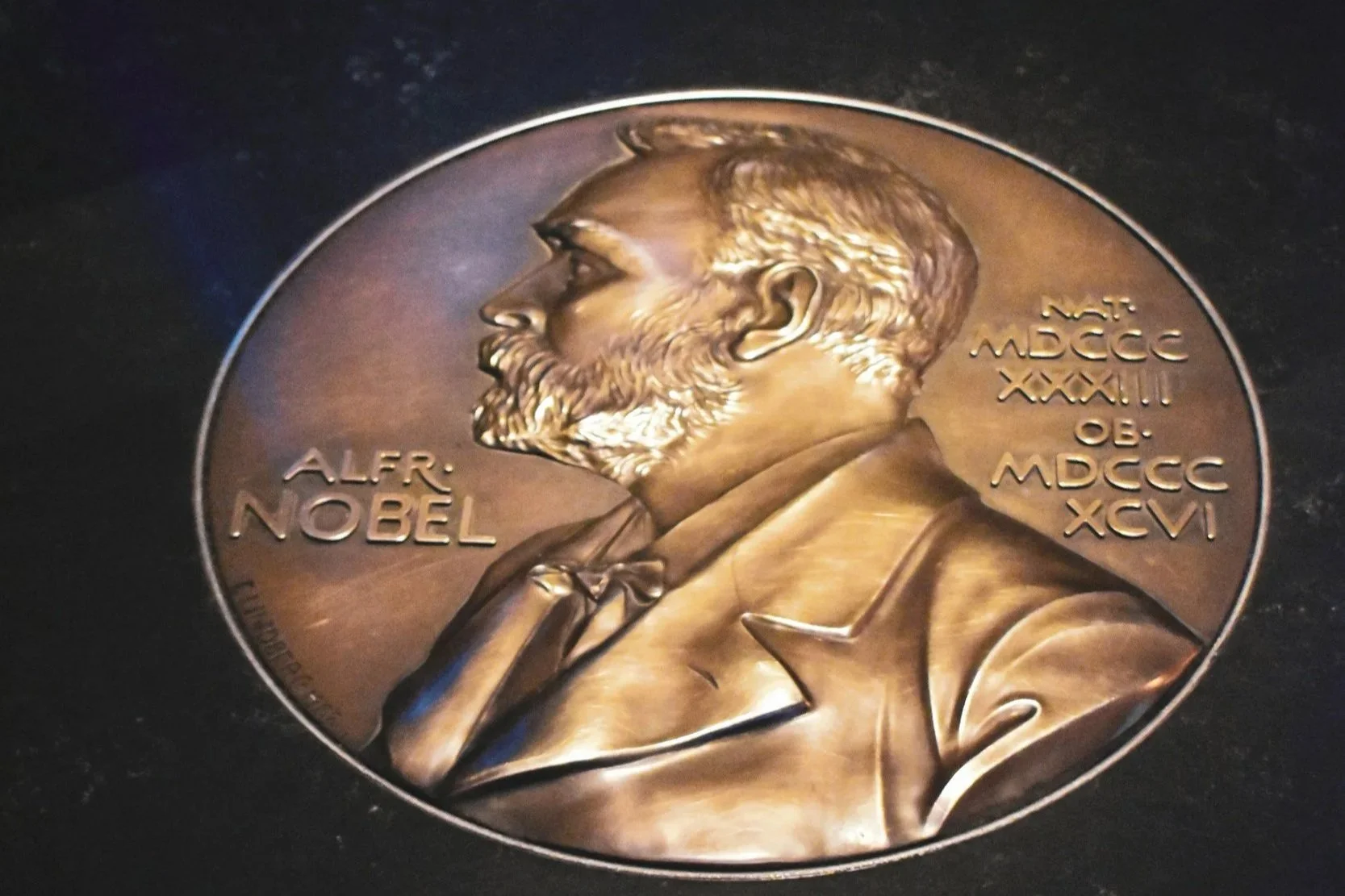Nobel’s Peace Beyond the Rules-Based Order
Credits: Stock Images
In October, as former President Donald Trump pined for his first Nobel Peace Prize, his press secretary Steven Cheung lambasted the Nobel Commission for placing “politics over peace” in selecting Venezuelan opposition leader María Machado as its recipient. This opinion came after a weeks-long campaign by the White House to credit President Trump’s foreign policy presence as the key factor in ending numerous global conflicts, and was largely discredited by leading policy experts and Nobel electors. Seeking American intervention against President Nicolás Maduro, Machado dedicated it to him, a striking proposal of military action by the newly awarded Peace laureate. Her dedication, however, is more than ironic, as it illustrates how American claims to “peace” often conceal the pursuit of power, a contradiction that lies at the heart of the modern rules-based order.
The United States has held a special role in international politics and law since 1945. The United Nations Charter contains language similar to our Constitution, and the torch of a “rules-based order” has long been upheld by U.S. Presidents and policymakers alike. Since its breakout moment during and after the Second World War, the U.S. has taken a preeminent role in the shaping and enforcement of modern international law, one that it has applied selectively to its advantage. This selectivity—moral rhetoric abroad, yet legal immunity in practice—became the enduring foundation of American exceptionalism. The Trump administration, in particular, asserted its ability to shirk international law, intervening in the ICC’s investigation of war crimes, and through a slew of extra-legal operations in Venezuela. The recent incursions into Venezuela under the Trump administration are arguably the most consistent with those of former presidents and form part of a long-standing tradition of American realpolitik within an arena dedicated to universal law and multilateral cooperation.
This tension between international idealism and domestic immunity is not new. In fact, it was codified two decades ago, when Congress passed the American Servicemembers’ Protection Act (better known as the “Hague Invasion Act”). Passed in 2002, in anticipation of an invasion of Iraq, it authorized the use of “all means necessary” to free any U.S. citizen detained by the International Criminal Court. The legislation marked the first time a liberal democracy explicitly legislated against a multilateral institution it helped to build and codified America’s exceptionalism from an informal privilege of power to written law.
The United States’ posture toward Venezuela from 2019 onward reflects a consistent pattern of executive exceptionalism in foreign relations law. By recognizing opposition leader Juan Guaidó as Venezuela’s legitimate head of state and supporting operations aimed at delegitimizing the Maduro government, the executive branch effectively bypassed the collective-security framework set out in Articles 2(4) and 51 of the United Nations Charter. The International Emergency Economic Powers Act (IEEPA) justified economic sanctions, asset freezes, and intelligence cooperation with sympathetic actors, all of which were unilateral and lacked authorization under any Security Council resolution. The Trump administration’s legal rationale—that the measures constituted “humanitarian support for democratic restoration”—echoes earlier invocations of unilateral humanitarian intervention rejected by most international-law scholars after Kosovo (1999). Kosovo is relevant because it set the modern precedent for humanitarian intervention without UN authorization, a move many saw as eroding the legal distinction between moral justification and lawful action.
The United States’ relationship with the International Criminal Court further illustrates the fragility of international law when confronted with great-power resistance. Following the ICC’s 2020 authorization of an investigation into alleged U.S. and allied war crimes in Afghanistan, the Trump administration imposed financial sanctions and travel restrictions on Chief Prosecutor Fatou Bensouda and senior court staff, invoking domestic authority under Executive Order 13928. These unprecedented measures sought to penalize the ICC’s international prosecutors for exercising jurisdiction explicitly granted under Articles 12 and 13 of the Rome Statute. Although the Biden administration rescinded the sanctions in 2021, it maintained Washington’s long-standing position that the ICC lacks jurisdiction over non-member parties. The same reasoning reappeared in 2024, when the ICC’s move to consider arrest warrants related to the Israel-Gaza conflict prompted U.S. officials to warn of “consequences” should the Court target Israeli or American personnel. The pattern remains unmistakable: moral leadership is invoked, and legal accountability is denied.
What differentiates the Trump administration’s conduct with international law from other administrations is the frankness with which it is carried out, which begets the question: Does this mark the end of the rules-based order? If international law is dependent on a tradition of moral authority, what happens when its leading proponent does not even grant its rhetoric to that power? As a multipolar legal framework begins to take shape, the same rules abroad will begin to apply less and less evenly. The United States, long the architect of that unevenness, may soon find itself navigating the very disorder it helped normalize. In this sense, Machado’s Nobel moment stands as a fitting emblem of the order’s decline. Peace has become performance, the law merely an instrument, and power is back as the enduring rule.
Kerem Koyluoglu is a Junior concentrating in Classics, Archaeology, and International and Public Affairs (IAPA). He is a staff writer for the Brown Undergraduate Law Review and can be contacted at kerem_koyluoglu@brown.edu
Natalia Riley is a junior concentrating in Economics and International and Public Affairs. She is a staff editor for the Brown Undergraduate Law Review and can be contacted at natalia_riley@brown.edu
Navyaa Jain is a junior concentrating in Computer Science - Economics. She is a staff editor for the Brown Undergraduate Law Review and can be contacted at navyaa_jain@brown.edu
